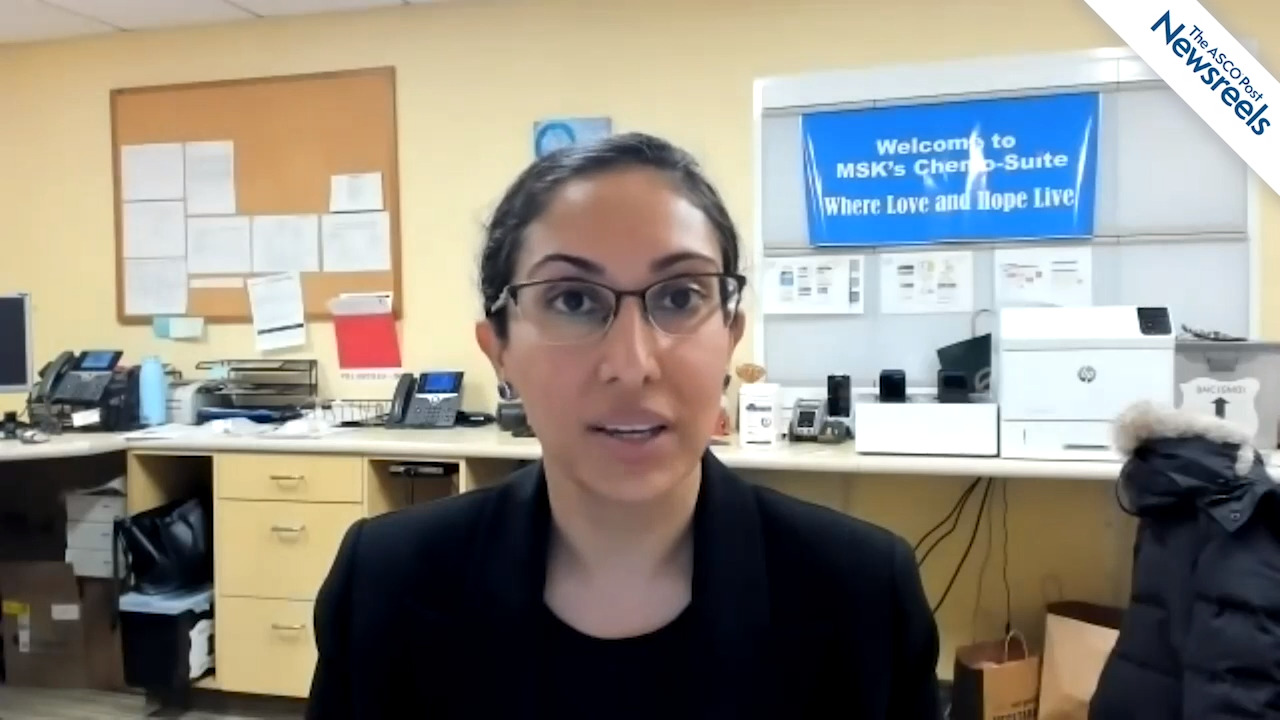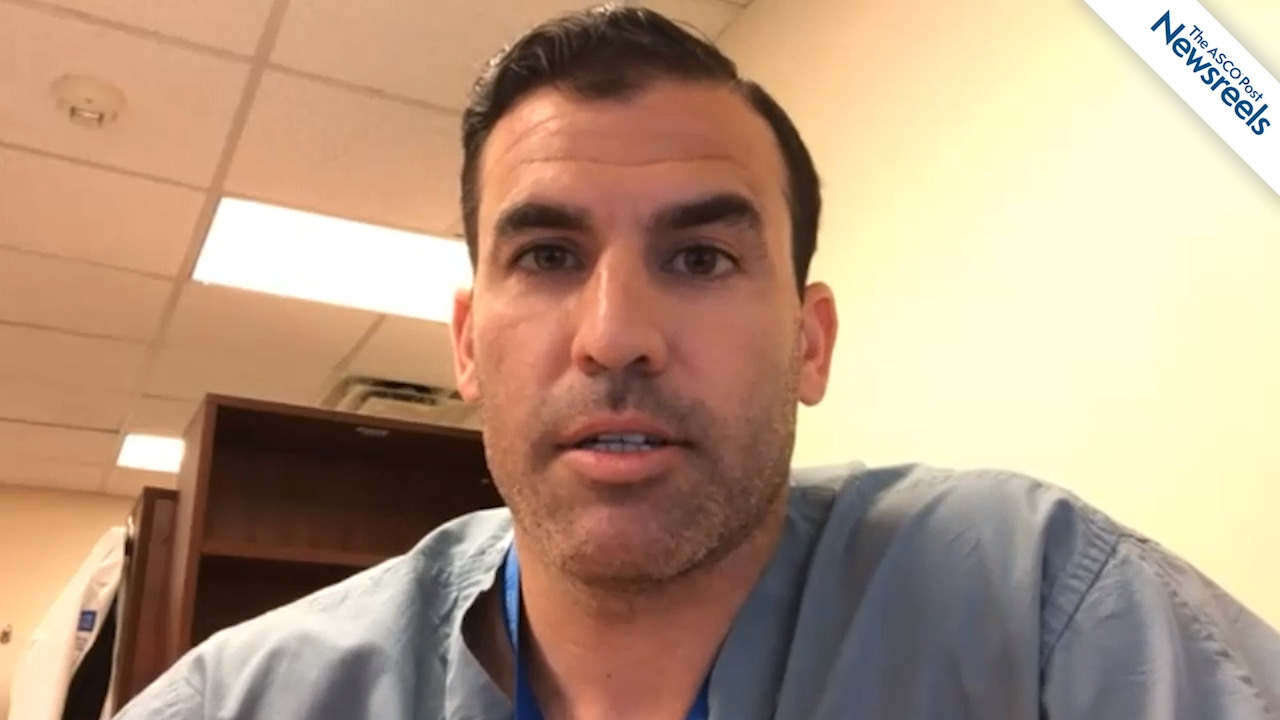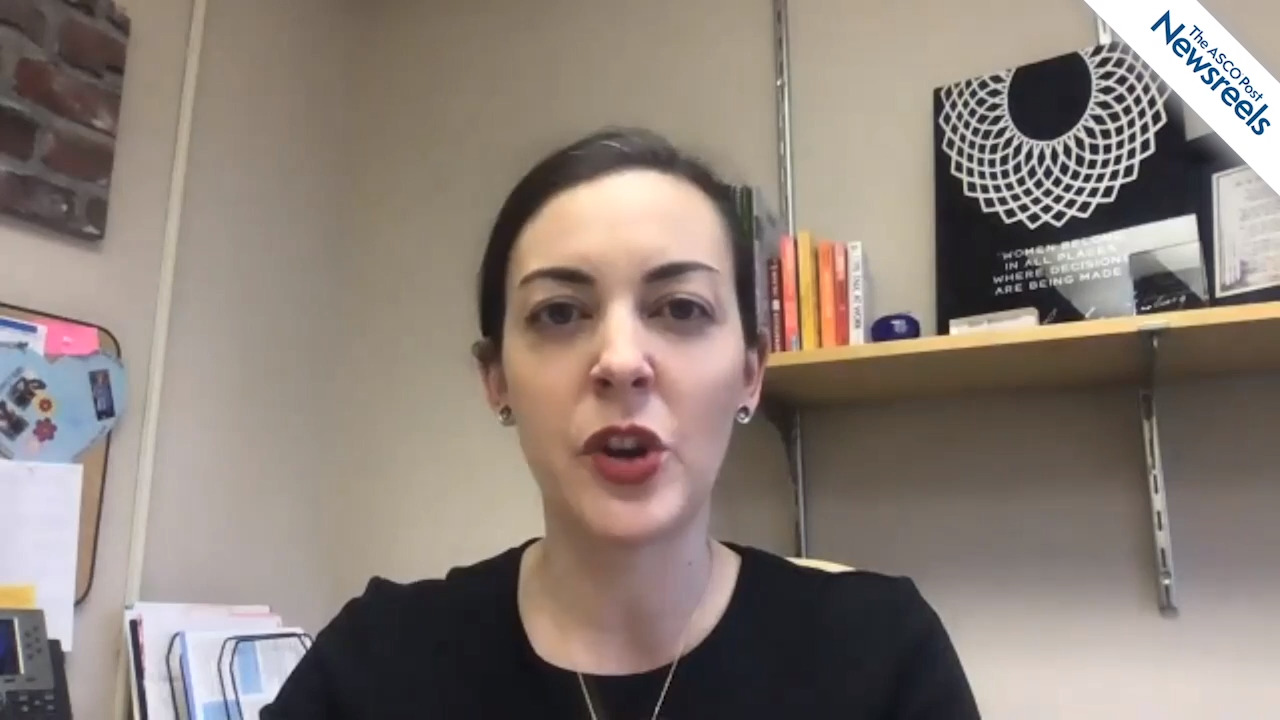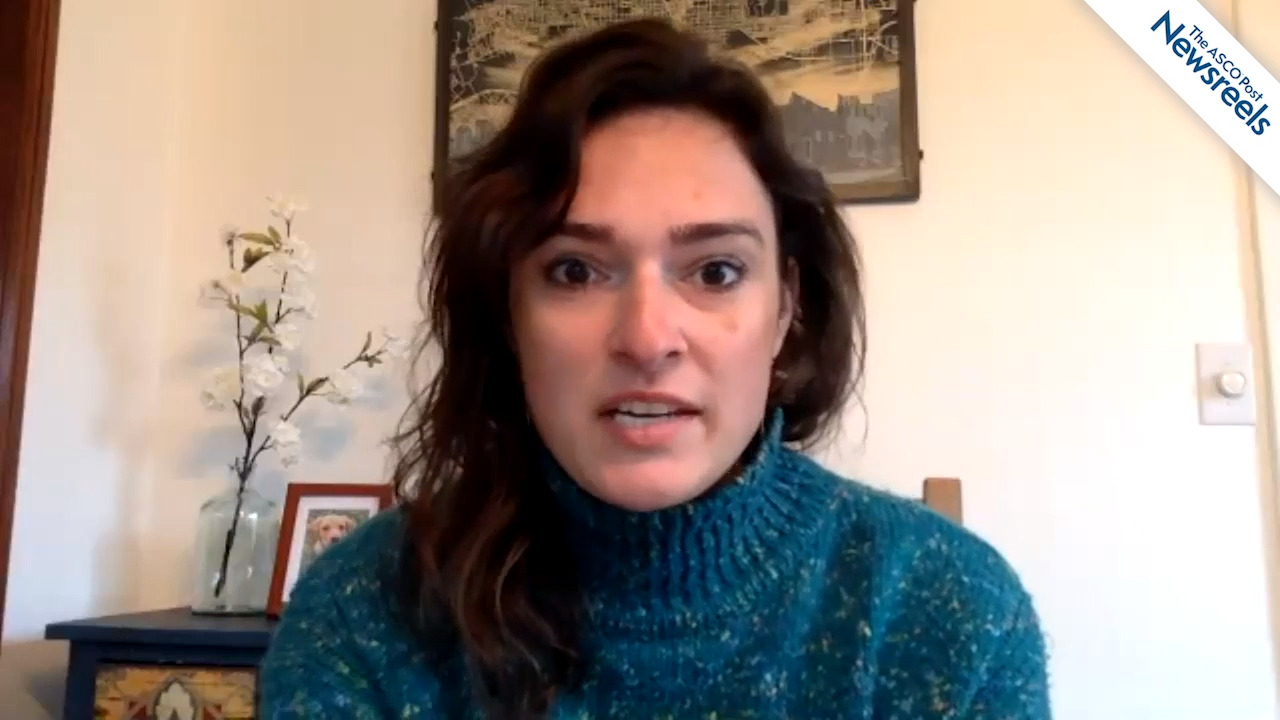Edward L. Trimble, MD, MPH, on Cervical Cancer: A Global WHO Initiative
SGO 2021 Virtual Annual Meeting on Womens Cancer
Edward L. Trimble, MD, MPH, of the National Cancer Institute, discusses the World Health Organization’s global strategy to speed the elimination of cervical cancer through vaccination, screening, treatment, and training for multidisciplinary teams in gynecologic oncology care. This marks the first time that 194 countries have committed to such an effort (ID # 10203).
The ASCO Post Staff
Eric Pujade-Lauraine, MD, PhD, of Hôpital Hôtel-Dieu, discusses results from the PAOLA-1ENGOT-ov25 trial on the use of homologous recombination–repair mutation gene panels and whether they can predict the efficacy of olaparib plus bevacizumab in first-line maintenance therapy for patients with ovarian cancer (ID# 10224).
The ASCO Post Staff
Vicky Makker, MD, of Memorial Sloan Kettering Cancer Center, discusses phase III findings showing that lenvatinib plus pembrolizumab may improve overall and progression-free survival, as well as overall response rate, compared with treatment of physician’s choice for advanced endometrial cancer. These results were achieved regardless of mismatch repair status following platinum-based chemotherapy (ID #10191).
The ASCO Post Staff
Anthony B. Costales, MD, of the Baylor College of Medicine, discusses results from the MIID-SOC trial, which explored the question of whether laparoscopic surgery for removal of ovarian, fallopian tube, or primary peritoneal cancer following neoadjuvant chemotherapy is feasible, safe, and provides similar outcomes as open surgery.
The ASCO Post Staff
Brittany A. Davidson, MD, of Duke University, discusses the development and validation of the GO-POP model (Gynecologic Oncology Predictor of Postoperative opioid use), an individualized patient-centered predictive tool designed to help avoid overprescribing pain medications (ID# 10253).
The ASCO Post Staff
Lauren Thomaier, MD, of the University of Minnesota, discusses the genetic variants found to be associated with an increase in chemotherapy-induced neuropathy symptoms in a cohort of gynecologic cancer survivors. Combining these variants with clinical characteristics may provide an important treatment tool (ID# 10253).





